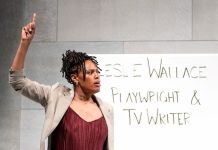DC Theater Arts caught up with Director and Playwright Psalmayene 24 to discuss Native Son and Les Deux Noirs: Notes on Notes of a Native Son, which play in rep at the Mosaic Theater this month.
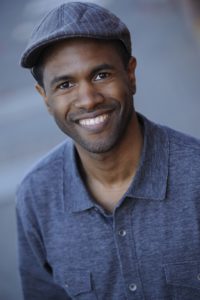
Native Son (directed by Psalmayene 24) is an adaptation of the renowned 1940 novel by Richard Wright. It tells the story of Bigger Thomas, a young African-American man living in poverty in the 1930s, presenting Thomas as a flawed character whose eventual crimes are the inevitable result of a society that systemically deprives African Americans of opportunity.
Richard Wright and fellow author James Baldwin appear as the protagonists of Les Deux Noirs: Notes on the Notes of a Native Son (written by Psalmayene 24). Two of the most celebrated African-American writers and thinkers of the 20th century, Wright and Baldwin famously sparred over what it meant to be Black in America. Their friendship became irrevocably strained when Baldwin publicly criticized Wright’s characterization of Bigger Thomas. Their meeting at the Parisian cafê Les Deux Magots – the frequent haunt of literary intellectuals in the mid-20th-century – has become a story for the ages, and is the subject of Psalmayene 24’s play.
Michele Simms-Burton: What drove you to direct Native Son and write Les Deux Noirs: Notes on the Notes of a Native Son?
Psalmayene 24: The opportunities fell in my lap. Mosaic Theater Company’s Artistic Director, Ari Roth, approached me about directing a workshop reading of Native Son. At that time the company hadn’t yet committed to a full production; we were having conversations about the material and how the play would land in this current moment. Ari said if the company does produce the play, we would want to do it in rep so that the play is in dialogue with another piece that elaborates on the ideas in the play and addresses the time we’re in from an additional perspective. The play that I was developing, Les Deux Noirs, was placed squarely on the table for full production when the initial play planned for the rep was pushed back to a subsequent season.
What complications did you encounter as the director of Native Son? It’s a pretty heavy text to transform to the stage.
Absolutely. It’s really about being as responsible as possible as an artist in dealing with the subject matter of violence, particularly toward women, and the moment of sexual aggression and violence that occurs in the piece. I had to really think about the most illuminating way that I as an artist and we as a team could approach those moments. I’ve elected to stylize certain key moments that quite frankly, are problematic for our current time.
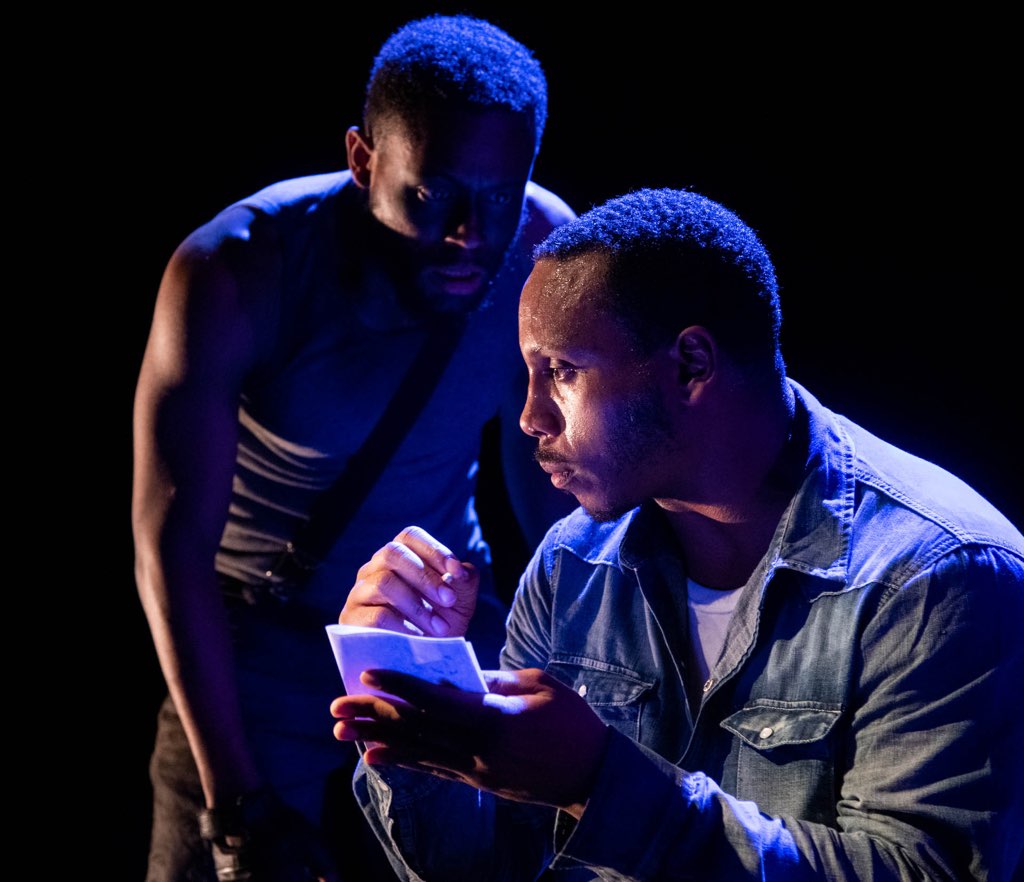
What did you do with Richard Wright’s bent toward communism and socialism and that whole part of the novel?
Those elements are in the adaptation, as Nambi [E. Kelley, the playwright] has written, but the emphasis in this production is not quite placed there. While communism is mentioned, I think it is the overall desire for equity and the hunger to live in a world free of oppression that course[s] through this production. So, I haven’t explicitly underscored the references to communism or socialism in the play, and I would say those elements aren’t necessarily at the heart of Nambi’s adaptation.
What inspired you to write Les Deux Noirs?
Doing my research for Native Son, I came across an article in the New Yorker that mentioned a meeting between James Baldwin, Richard Wright, and Chester Himes [three prominent African American expatriate writers]. They met in a Parisian café called Les Deux Magots. Baldwin had actually requested the meeting to borrow some money from Richard Wright. But what was interesting about the meeting is that this happened after Baldwin had already had two essays published that criticized Richard Wright’s Native Son [the novel]. Wright took this as an opportunity to confront Baldwin about his critique of his novel. I took that as my starting point and used that location and this idea of the older seasoned and established writer confronting the young upstart writer as a springboard for my play. Unfortunately, Himes does not make an appearance at all. I’ve taken creative license and re-imagined the meeting being just between Richard Wright and James Baldwin.
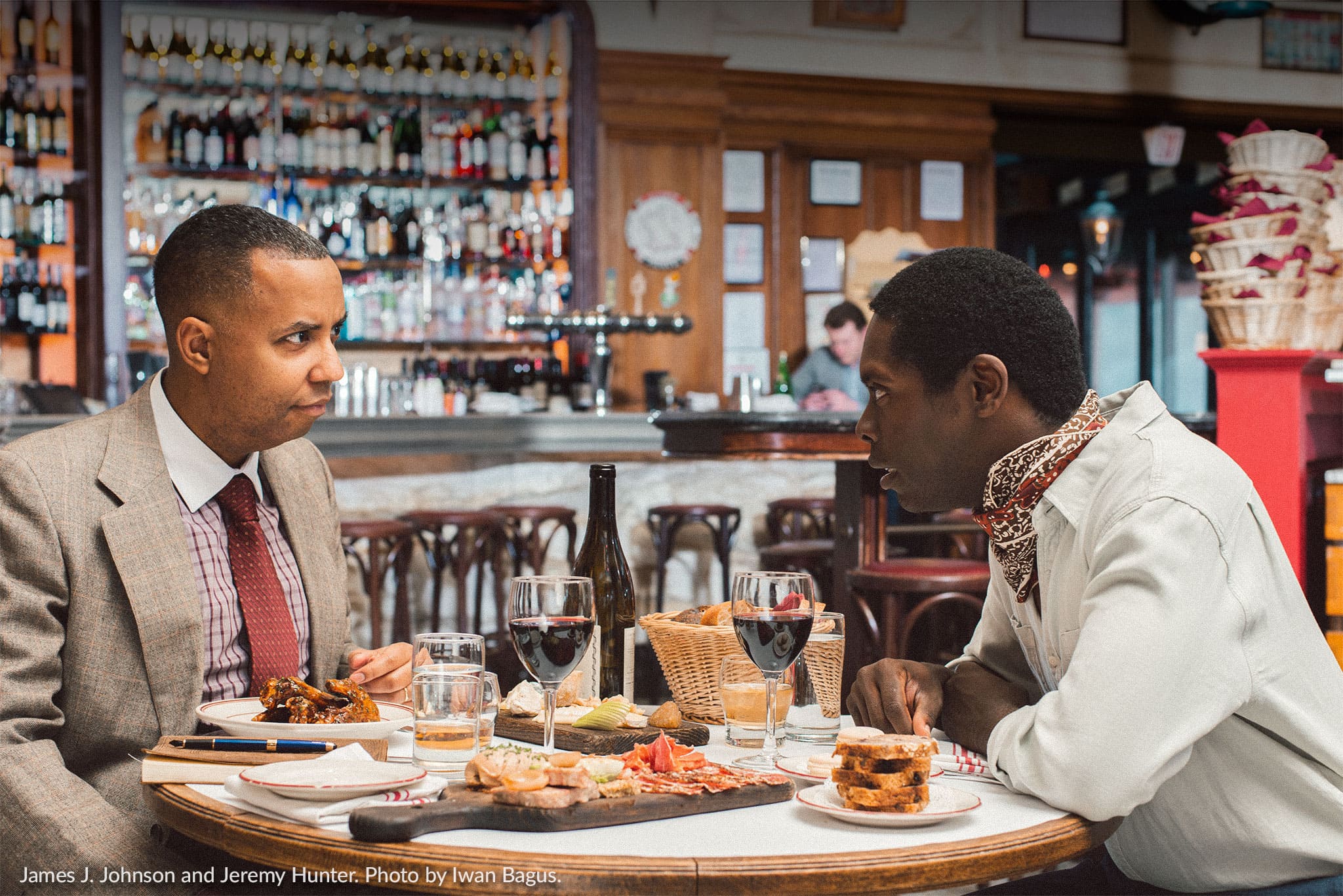
How did you approach writing Les Deux Noirs?
I think it’s more about getting over being intimidated by these towering figures of James Baldwin and Richard Wright. I’m a writer writing about these two unrivaled writers. And doing my best to capture their voices, especially Baldwin who has a very specific writing voice. And he also has a very iconic speaking voice. It was a challenge and a pleasure to get inside the skin of these two beautiful African American artists and try to think as they thought. I tried to create a play that was true to who they were but I also aimed to create a piece that felt like it brought them into our current moment.
Everything that they have written and said is still appropriate, especially Baldwin.
Especially Baldwin. I mean in a different way Wright is just as timeless and timely as Baldwin. I think with Wright, his work is more stubborn and confrontational. You truly have to grapple with Wright’s work. It forces you to wrestle with it. I think part of Wright’s greatness is that he was uncompromising. It was said that he was a stubborn man. You can feel that in his work, in his writing, and in his ideas, he is very staunch in what he believes and how he weaves a story.
He is a master storyteller. I always see Wright as the master storyteller and Baldwin as the master essayist.
Exactly. No one can put together a sentence like Baldwin. He’s like is a poet of philosophy, a poet of thought. That’s how I view Baldwin. Wright is an enormous storyteller. His stories have so much gravity and weight. It’s like they exist someplace in outer space, and they call you towards them.
The third film adaptation of Native Son is coming out soon. How do you feel about that?
I’m thrilled and excited that the [film] is going to premiere during our run. The stars have aligned. I think it’s great that this story is now going to be experienced by more people. I actually did not read the novel in school and had not read the novel prior to doing the workshop. Once the production was confirmed, I went ahead and read the novel, and then I read Black Boy, which I loved. In some ways, I think Black Boy should be read before Native Son because then you get some broader context for Wright, who he is as a man, and what shaped him. Then you can connect that with what shapes Bigger Thomas [the protagonist in Native Son]. There are a lot of connections between Wright and Bigger. Of course, Bigger is the extreme version of a Black man who was forged in a racist and oppressive society, but you see sort of the bones of Bigger in Wright’s life.
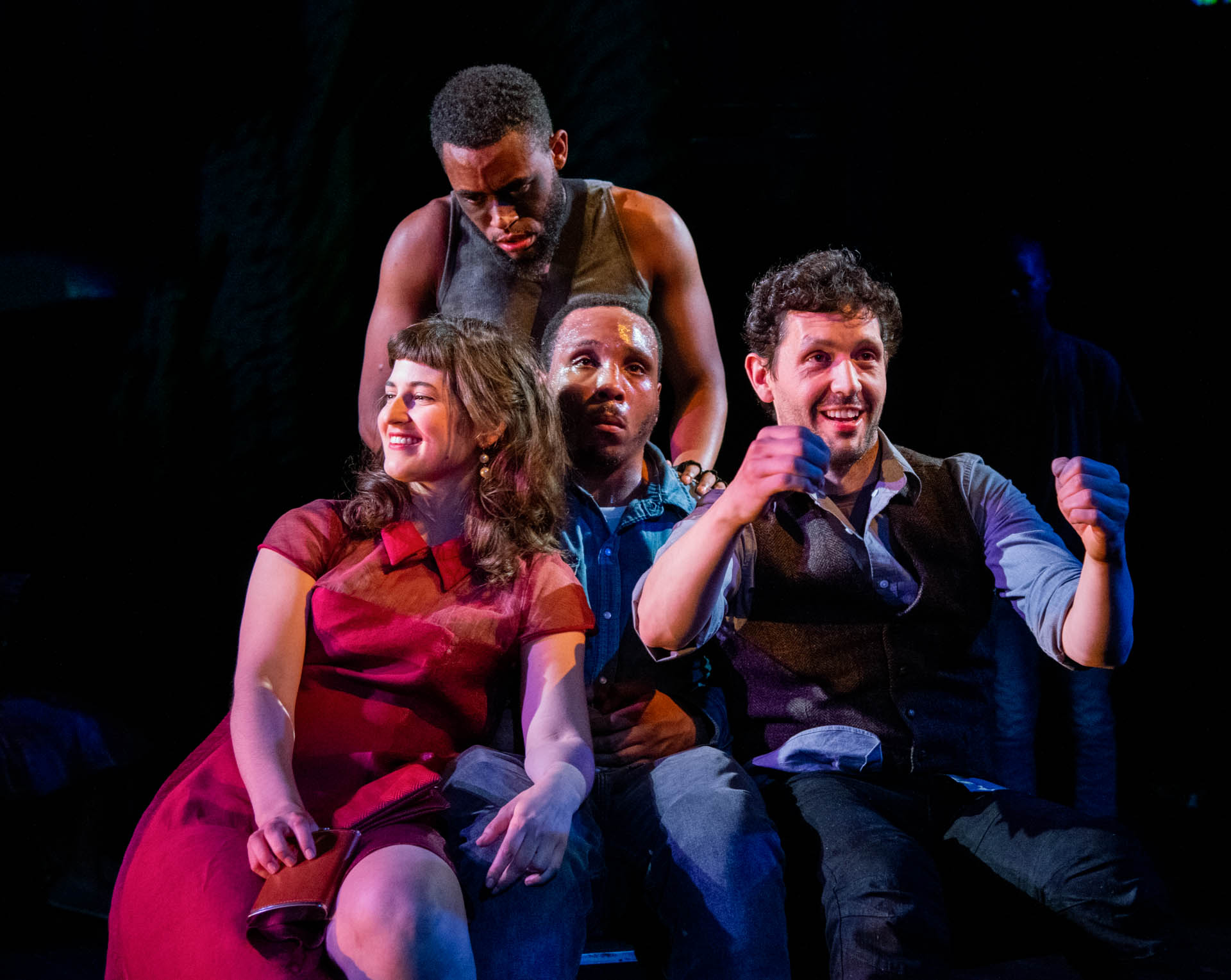
What do you want the audience to take away from Native Son and Les Deux Noirs: Notes on Notes of a Native Son?
I want to really refine the audiences’ understanding of the African American experience. In some ways, we now know more about Black people than we’ve ever known in America’s history. But there’s so much more. Our experience is deep and rich and complex that I don’t think we could ever learn enough, especially when it comes to the depth of our pain, and the depth of our joy. I think we can still explore those two extremes of our existence. And particularly with Native Son, I think it’s about really expanding our capacity for empathy. We are asking a lot of an audience to root for and feel for a main character who does such horrific things. But if we can do that, if we can create some understanding and, dare I say, love, for Bigger Thomas, then I think that we can carry that into our real lives as well.
You sound like Baldwin now.
Right, his whole thing was ultimately about love.
What else would you like audiences to know?
I want to emphasize how important it is for audiences to see both of these productions because they are in intimate dialogue and conversation with each other. I think in order to get the full experience you have to see both [plays].
Native Son plays through April 28, 2019, and Les Deux Noirs: Notes on the Notes of a Native Son plays April 7 -27, 2019, presented by Mosaic Theater Company at the Atlas Performing Arts Center, 1333 H Street NE, Washington, DC. For tickets, call the box office at 202-399-7993 ext. 2 or go online.




